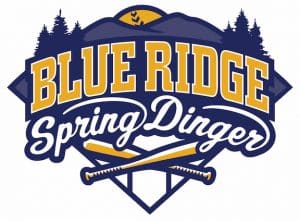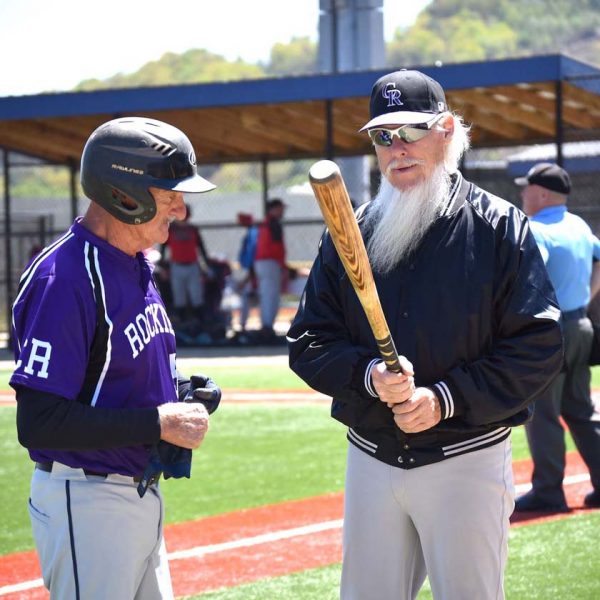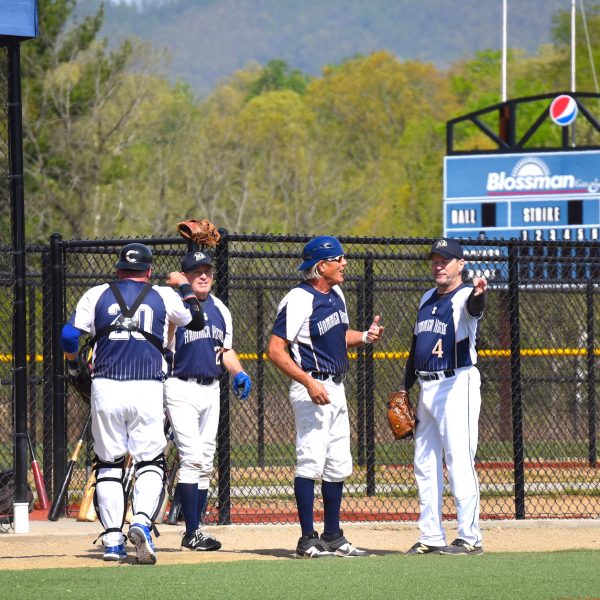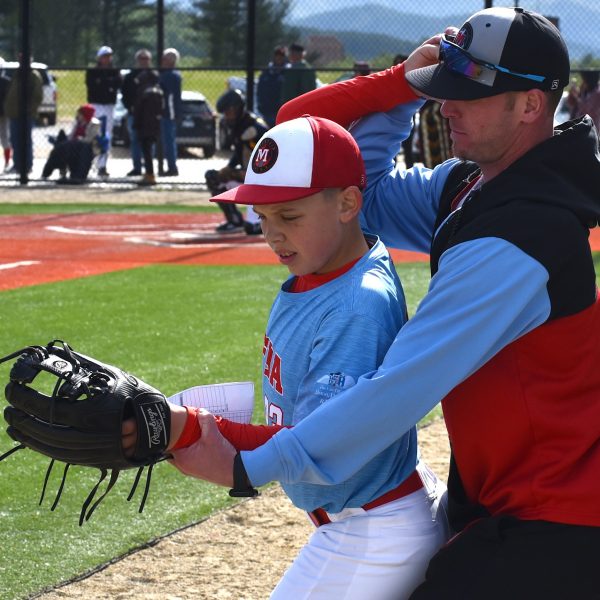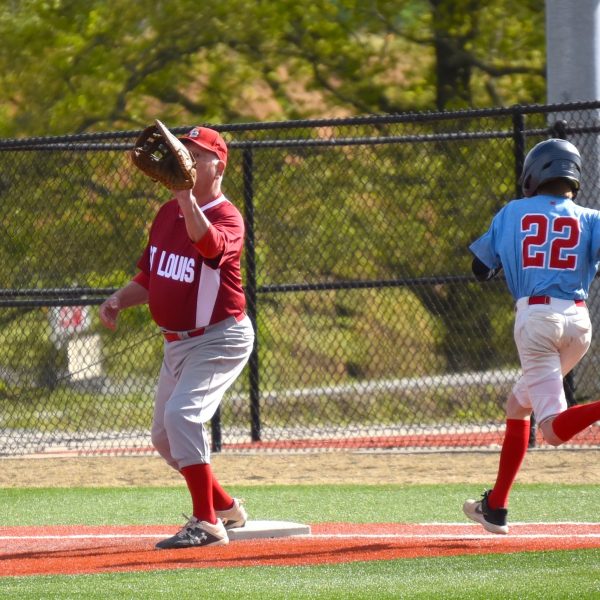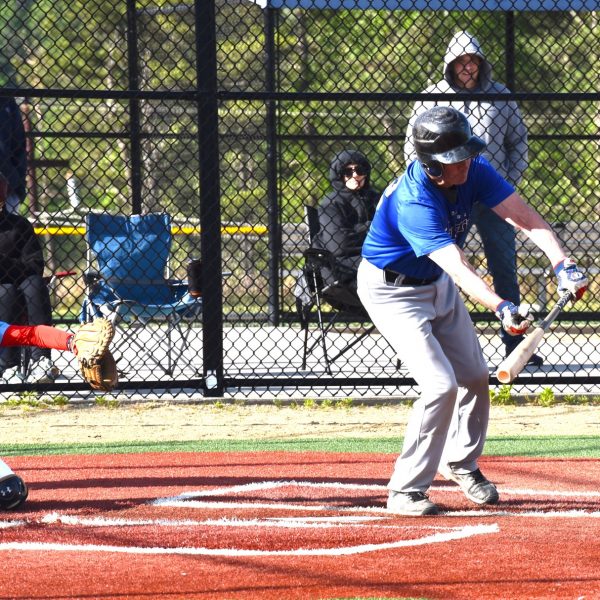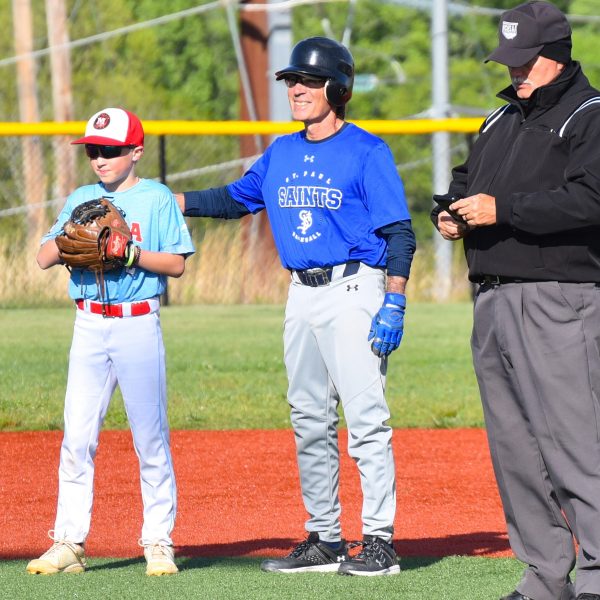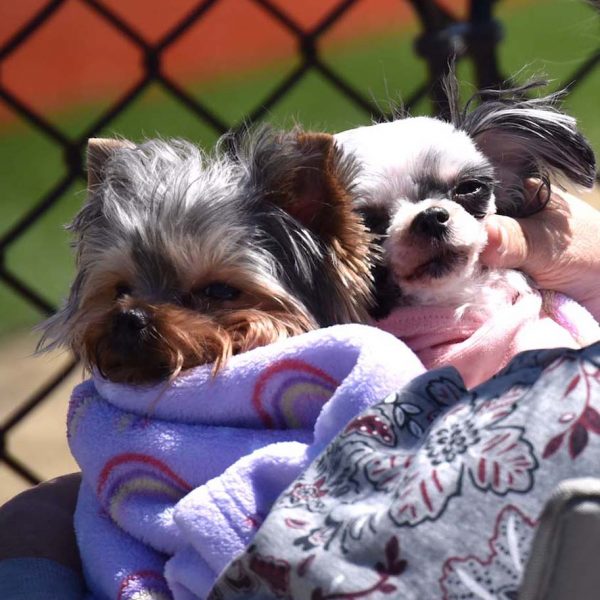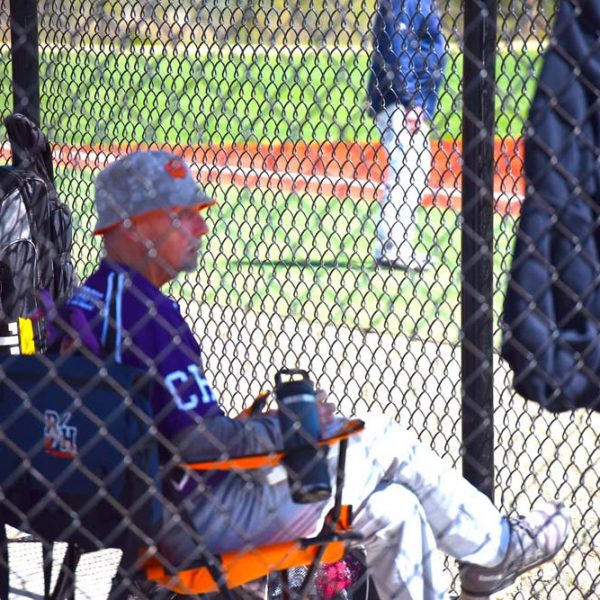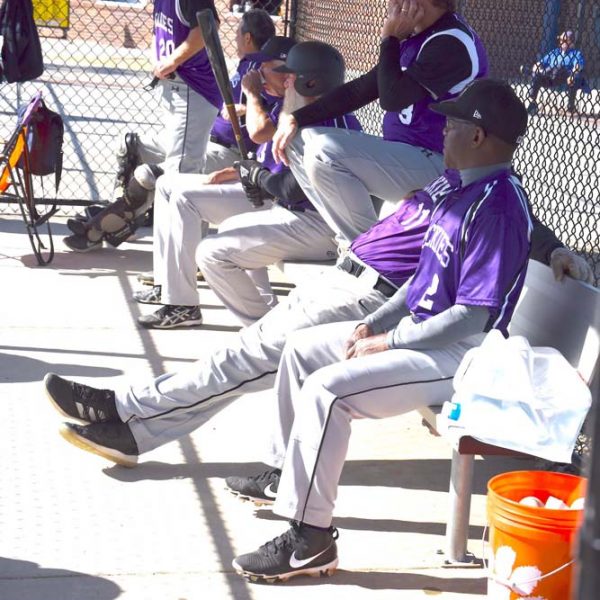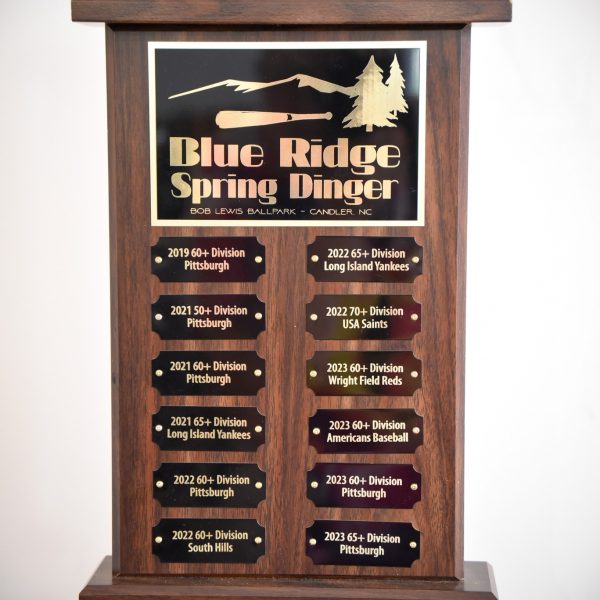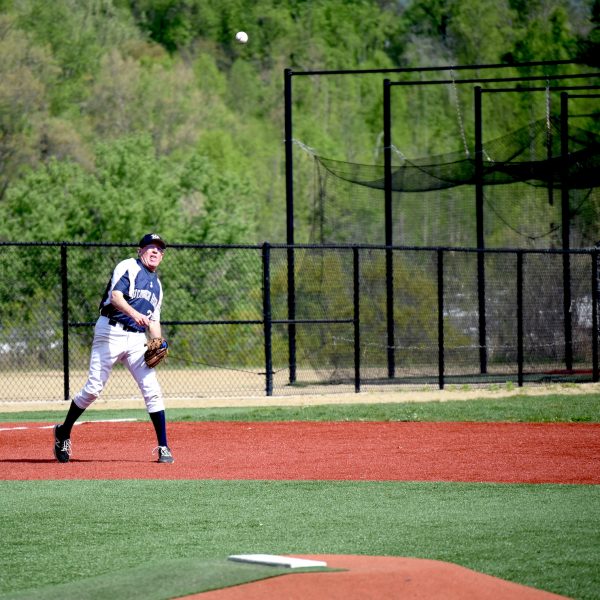
Blue Ridge Spring Dinger
Game Rules
We play by the Official Rules of Baseball with the following addendums.
There is NO must slide rule! Only a “no deliberate/malicious contact” rule at the umpires judgement
4.0 Game Guidelines
BRSD follows the Official Rules of Baseball, including the MLB sliding rule. The following are the addendums.
4.01 Games: The Tournament Director has discretion to set the length of games due to the number of teams, weather or other logistical conditions that are beyond human control. Exceptions include:
4.01a Mercy Rule: In the case of 7-inning games, the mercy rule is 12 runs and will be applied after the 5th inning is complete (top of 5th if home team is ahead), except at the manager and umpires discretion. (Both teams must have the same number of at-bats, unless the home team is leading.)
4.01b Time Limit: No new inning will begin after 2:20 of playing time in a scheduled 7-inning game, unless time limits waived by tournament officials. Special Notes: While it is each team manager’s responsibility to monitor time issues, umpires are requested to notify both benches at least one full inning ahead of reaching time limits. Umpires will ‘stop the clock’ on a) weather suspensions, b) injuries where a player requires medical attention on the field, c) to handle protests, and d) any other unavoidable delay.
4.01c Weather issues: All games stop immediately if lightning is spotted. Weather-stopped games are suspended pending the decision of the tournament director, regardless of number of innings played. (Umpires may suspend but not declare game over in weather situations.)
4.02 Extra innings: Games where scores are tied at the completion of regulation play shall go into extra innings provided time limits allow. If the score is tied when time limit is invoked, the tie will be resolved by International Shootout rules, which are:
4.02a Play 1 inning at a time, with the last 2 legal batters from the previous inning starting the new inning at first and second base.
4.02b Each hitter comes to the plate with a 2-2 count. If the pitch is a called strike or missed on the swing, the batter is out; if the pitch is fouled off, the count remains 2-2; or the batter hits the ball fair. It takes 2 balls for the hitter to walk.
4.02c Each team gets 3 outs. If the score remains tied after each team has batted, repeat the process until there is a winner.
4.03 Lineup cards: Both managers, prior to or at the home plate meeting at the start of the game, will give the home plate umpire and the opposing manager a copy of their lineup, which MUST include:
4.03a First Initial or first name and last name of all players who potentially could appear in the game.
4.03b All players (including all substitutes and relief pitchers) MUST be listed on the lineup card, even if they are not starting offensively or defensively, to be eligible to play in the game. (If a player is delayed, make sure player is listed so he can play upon arrival.)
4.04 Batting order rules: The number of hitters in the batting order is team option; basic batting order is 9 hitters; there is no maximum. Batting order may not be reduced after the umpire receives the lineup.
4.04a Team may start a game with 8 players; the ninth batting slot is an “out” each time it comes to the plate; when ninth player shows up, he will be inserted into the ninth spot in the batting order without penalty. Exception to automatic out: See 4.04d.
4.04b If the batting or fielding contingent is fewer than 8 at any time, the game is ended with the deficient team forfeiting.
4.04c If a team begins play with 9-or-more players and all are in the offensive order (therefore, no substitutes available), and a player is forced to leave the game (offensive & defensive lineup) for an injury, no “out” will be declared when that player’s position comes to the plate. However, if the offensive player leaves the lineup for any other reason (i.e., ejection or leaving the playing site), an “out” will be declared for that vacant spot in the batting lineup each time it comes to the plate. Notes: If a player is injured and out of the game, he is removed both offensively and defensively. If an injured player wants to hit in a 9-man scenario, he must also run the bases should he reach safely.
4.04d Exception to the automatic out: A game may not end on the automatic out.
4.04e Additional hitters may be added to the end of the batting order provided that …
4.04e.1 players are listed on lineup card;
4.04e.2 players may not have appeared anywhere else in the offensive lineup in;
4.04e.3 offensive lineup may not be reduced at any time; exception being injury (see 4.04c above).
4.04e.4 team adding to its lineup must communicate addition to umpires and to opposing team/scorebook prior to that player hitting.
4.05 Offensive substitution: BRSD uses the Shared Lineup position to enter more than one player in any offensive batting order position.
4.05a Offensive substitution is unlimited, provided said player stays in the same spot in the lineup once he is placed there (i.e., a batter and a runner for that batter may occupy the same position in the offensive lineup; the manager must declare who is batting at that lineup position if there is a change. Neither player may appear in any other offensive lineup slot.) A manager may use an unlimited number of players in any lineup slot, but those players cannot be used elsewhere offensively.
4.05b Any player entering a game as a runner (i.e., player has not played offensively to that point), thereby creating a shared position in the batting order, must bat the next time that batting order position comes to the plate.
4.05c Interpretations
4.05c.1 This rules does NOT require players to alternate once initiated; it requires that the runner get the next at-bat.
4.05c.2 What happens if the runner shares in the late innings and the batting position doesn’t come up again in that game? Whether the runner gets an at-bat is something to be worked out between the player and the manager; at that point, the timing of the shared position decision is dictated by the circumstances in the game.
4.05c.3 Penalty: Handled as a batting out of order situation (ORB 6.07), and, by rule, it is the responsibility of the defense to bring the fact of the ‘improper’ batter to the attention of the plate umpire. Penalty exception: In this case, if the ‘improper” batter reaches base and is called out on 6.07, the ‘proper’ batter (who ran as a shared position) will then be the ‘proper’ batter.
4.05d A shared position in the offensive lineup may be initiated any time at manager’s discretion.
4.05e Managers must notify umpires and opposing manager/scorebook when players in shared-lineup positions are being switched the first time in the game. (Penalty for failure to report: Handle same as batting out of order, and to challenge, follow the same rules that apply to batting out of order – ORB 6.07.)
4.05f NO courtesy runners. Use shared lineup position.
4.06 Defensive substitution: There will be free and unlimited defensive substitutions, without reporting to the umpire, the official scorekeeper (in playoffs) or the opponent’s scorekeeper (although it is a courtesy to do so). Exception: Pitching changes must be reported to the umpires and to both team’s scorekeepers.
4.06a All pitchers will follow ORB with regard to re-entry as a pitcher. (One re-entry per inning but must stay on the field on defense.)
4.07 Official Scorebook: The home team scorebook is the official scorebook unless the home team cedes the responsibility to the visiting team and informs umpires. During championship games, designated official scorer’s book is the official scorebook.
4.08 Pre-Game meeting: Managers are required to attend pre-game home plate meeting. (In case of protests and/or ruling clarifications, umpires will discuss issues only with those who attended pre-game plate meeting.)
4.09 Dugout access: Non-uniformed individuals are not allowed in open dugouts during the play.
4.10 Protests: Protests are allowed on misapplication of game rules. Protests on a judgment call by an umpire will be declined. Retroactive protests will not be accepted. Protests must be made at the point at which a rule has been misapplied. To protest a game, a manager must:
4.10a Stop the game before the next pitch is thrown.
4.10b Notify the umpire and the opposing manager that the game is being played under protest.
4.10c Write in the HOME team’s scorebook the situation and on what grounds the game is being protested. The protesting manager must sign the notations.
4.10d The umpire must sign the HOME team’s scorebook, noting the situation of the game (including the count on the hitter) when the protest was lodged.
4.10e Protesting team must post $50 to BRSD and give it to the plate umpire (who gives it to Field Manager or event official addressing the protest). (If the protest is upheld, the $50 will be returned; if not, the $50 goes to a charity of BRSD choosing.)
4.10f Umpires and managers will meet with BRSD representative, who will resolve the protest before resuming the game. Decision of BRSD official is final.
4.11 Ejections: Ejected players must leave the field of play and the vicinity of the playing field upon gathering their belongings. Any further contact with the umpires, even after the game finishes, could bring possible disqualification from the remainder of the event. All ejections carry automatic 1 game suspension for the player.
4.12 Ejection reinstatement: Ejected players are suspended from further competition until they meet with the Tournament Director or his representative.
4.12a Any player ejected twice during the event, regardless of reason, is disqualified from further competition. Appeal: Any player ejected twice in one event must file a written appeal to BRSD to attend any future Dinger event. Decision of the BRSD leadership is final.
70s Addendums
- If a batter hits the ball to the outfield and it hits the ground, they cannot be thrown out at first base.
- EXCEPTION: If the batter/runner turns toward 2nd base they are eligible to be thrown out at any base.
- Runners on first may lead off, but may NOT steal 2nd base. Runners on 1st base may only advance if:
- The ball is hit and put in play.
- There is a pick-off attempt made on the runner at 1st base.
- There is a wild pitch that gets past the catcher’s box.
There is NO must slide rule
Only a “no deliberate contact” rule at the umpires judgement

